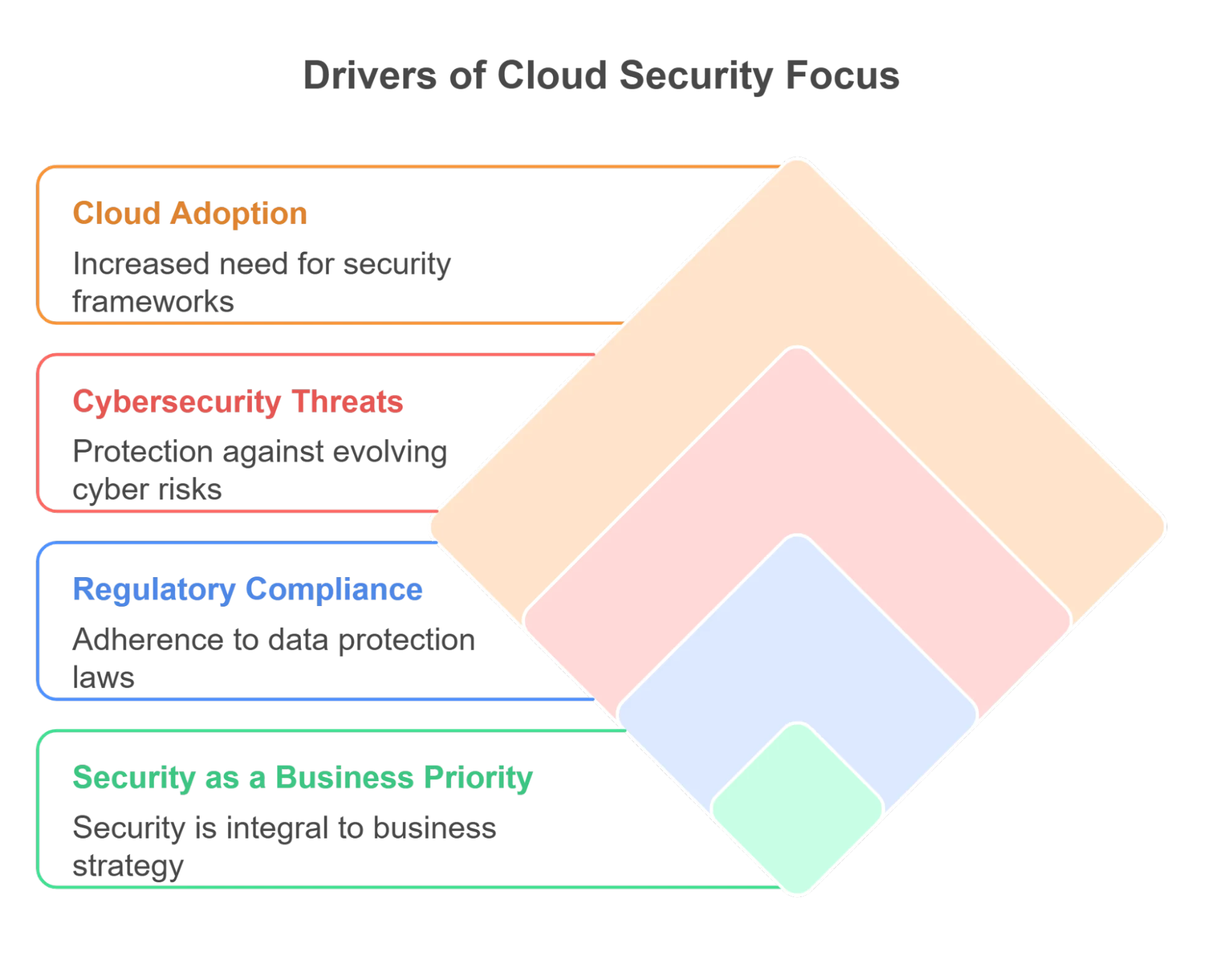Cloud security is foundational to modern business, underpinning both operational agility and organizational trust. As more enterprises migrate sensitive workloads to the cloud, understanding what cloud security entails and its implications for business resilience-has become a non-negotiable priority.
With 82% of breaches now involving cloud-stored data, robust cybersecurity measures are essential not only for safeguarding assets but also for empowering innovation.
| As Willis Cantey, CEO of Cantey Tech Consulting, says, “A well-architected cloud security strategy turns risk mitigation into a catalyst for growth, ensuring IT works securely and seamlessly.“ |
In this blog we’ll explain what cloud security is, highlight the major threats businesses face, and walk through the strategies that strengthen infrastructure, workloads, and data protection so organizations can stay resilient in the cloud.
Why Cloud Security is a Top Priority for Modern Enterprises
Cloud security has become one of the most critical priorities for businesses of all sizes. As organizations accelerate their digital transformation and migrate workloads to the cloud, they face growing challenges that demand stronger protections for sensitive data and infrastructure.
Key Drivers Behind the Rising Focus on Cloud Security
1.Explosive Cloud Adoption
Public cloud adoption continues to grow at record speed. Global cloud spend is projected to reach $723 billion by 2025, as enterprises expand their digital environments. This rapid adoption increases the need for consistent cloud security frameworks to prevent breaches and data loss.
2.Escalating Cybersecurity Threats
With a growing number of vulnerabilities disclosed each year, threat actors are increasingly targeting cloud environments. From ransomware to misconfigured storage buckets, organizations must prioritize cybersecurity in the cloud to stay ahead of adversaries.
3.Stricter Regulatory Compliance
Governments and regulators worldwide are tightening privacy and data protection laws. Enterprises are expected to demonstrate strong cloud compliance and safeguard customer data, or risk heavy fines and reputational damage.
4.Security as a Business Priority
According to industry reports, 77% of organizations cite security as their top cloud concern, highlighting its central role in digital transformation, business continuity, and customer trust.
Cloud Security Challenges for SMBs
For small and mid-sized businesses (SMBs), these pressures often create unique challenges. Limited budgets, fewer in-house security experts, and complex regulatory requirements can leave gaps in protection. Partnering with a trusted cloud security provider or technology consultant helps SMBs:
- Implement proactive security strategies
- Maintain compliance with evolving regulations
- Strengthen resilience against cyber threats
- Scale securely as their business grows
Building a Secure Cloud Future
Cloud security is no longer optional, it is foundational for enterprise growth and innovation. Organizations that address today’s risks with proactive security measures will not only protect their data but also gain the resilience, agility, and customer confidence needed to thrive in the digital economy.

Understanding the Reality of Cloud Security Threats
Cloud security threats are not hypothetical, they are real, persistent, and becoming more sophisticated. Attackers often exploit misconfigurations, such as open storage buckets or poorly managed access controls, to gain unauthorized entry.
Phishing remains a common entry point; a single careless click can expose sensitive data and trigger cascading consequences, from regulatory penalties to lasting reputational harm.
To address these risks, organizations must recognize that 24/7 cloud monitoring is no longer optional. The ability to detect and respond to threats in real time is critical, especially as adversaries move quickly.
Equally important is having a certified, experienced team that can contain incidents before they escalate, particularly for firms that may not have deep in-house cybersecurity expertise. Without this level of vigilance, even minor oversights can evolve into significant breaches.



